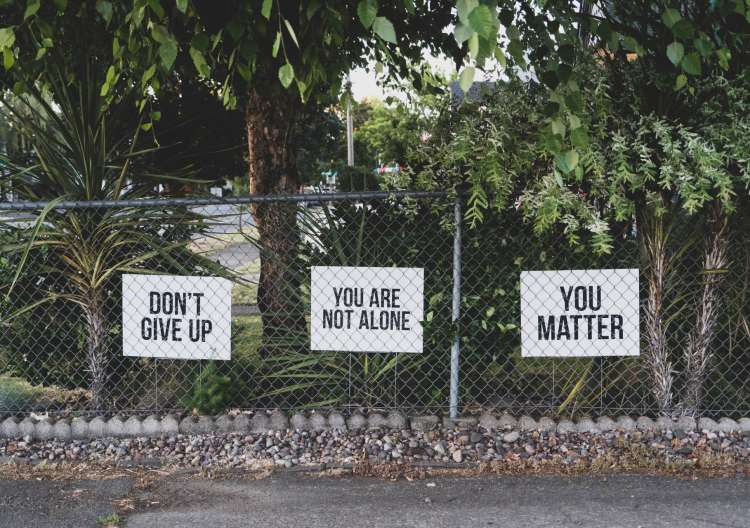While stress affects everybody, regardless of age or sex, the way we respond (physically and mentally) can differ between males and females, as can the way we should be managing our stress levels.
Most of the effects of stress don’t discriminate between men and women, however, there are a few which are exclusive to or more prominent in men.
There is also the fact that men aren’t usually as comfortable talking about their feelings and reaching out to ask for help, as this can be seen as a sign of weakness. This can lead to them continuing to suffer under excessive pressure, without finding the resources to help them cope.
If you’re worried about your stress levels, you might find my Stress Test useful. In 10 quick and easy questions, it provides an instant stress score with follow up advice and tips.
Stress Symptoms in Men
- Prostate cancer
A study from Science in 2013 found that stress on nerves can increase the risk of prostate cancer and can increase the growth and spread of tumours.
Stress causes your sympathetic nervous system (which controls your fight-or-flight response) to release the chemical noradrenaline, which was found to trigger a cancer-stimulating response. The parasympathetic nervous system (which relaxes your body) releases another chemical that helps cancer cells break away and spread to other parts of the body. Therefore, learning to manage your stress levels, and ideally reduce them, can help to protect you from the stimulation and spreading of prostate cancer
- Cardiovascular disease
Although this is not limited to males, there is research to suggest that men are more likely to develop cardiovascular disease at a younger age, and are at a higher risk of coronary heart disease. Stress increases blood pressure and cholesterol, which are major risk factors in the development of heart disease. This isn’t fatal as a one-off incident however, prolonged and excessive stress can cause inflammation in the coronary arteries, increasing the risk for a heart attack.
- Infertility
In 2014 a study at Columbia University found a link between psychological stress and men’s fertility, leading to the conclusion that stress is harmful to sperm and semen quality, affecting its concentration, appearance, and ability to fertilize an egg. Although this link is yet to be understood, it is thought that stress may trigger the release of steroid hormones called glucocorticoids, which may blunt levels of testosterone and sperm production. Alternatively, oxidative stress has been shown to affect semen quality and fertility.
- Erectile dysfunction
Personal, professional, and relationship stress is the leading cause of erectile dysfunction in middle-aged men, although it can affect males of any age. The physical and mental effects of stress combined with the anxiety and stress over erectile dysfunction can contribute to an ongoing cycle of erectile dysfunction.
- Cold and Flu
It is known that stress weakens the immune system and interferes with your inflammatory response. This makes you more susceptible to colds, harder to fight off bugs, and more likely to develop infections as a result.
- Gastrointestinal problems
Prolonged and excessive stress can become detrimental to your gastrointestinal system. Even short-term stress or brief stressful experiences can cause stomach upset and pain, but when stress is ongoing, the effects can become more serious and long-lasting including constipation or diarrhea, heartburn, acid reflux, and stomach ulcers.
- Aches and pains
Aches and pains are a common complaint, especially in males as they get older, and one that can result from high-stress levels. Increased levels of the stress hormone cortisol are thought to be associated with chronic pain.
Stress causes your muscles to tense, which can lead to ongoing pain in your neck, shoulders, and back. Stress is also a common headache and migraine trigger. However, the resulting and ongoing pain from stress may also increase your stress and anxiety, forming a vicious circle.
Now that we’ve discussed some of the effects that face men dealing with high-stress levels, it is very important to understand how to best manage that stress.
Managing Stress
Speak to friends and family if you’re not comfortable seeking professional help. It is true that a problem shared is a problem half solved, and can lighten the burden you’re carrying. People often feel a sense of relief when they finally say the words out loud.
Remain social. Men are especially prone to withdrawing from social activities and people when they feel stressed. This can make you feel even worse as you start to become isolated and may experience feelings of loneliness and/or anxiety. Being around others can distract you from your problems.
Exercise. This doesn’t have to be in a gym – go for a walk, do yoga, find a new hobby. Exercise lowers stress and anxiety levels. Doing something outdoors, completely away from your phone can be extra beneficial, or yoga which practices mindfulness, helping you to focus on the present moment, free from over-analyzing and worrying about your problems.
Identify and avoid your stressors. It might be your work or perhaps it’s a family member, an extra commitment you’ve taken on, or the culmination of everything. Keeping a journal can help you identify how, what and when you’re feeling the way that you are. Then cut back on the stressor. Stop doing so many favours for others, reduce your hours at work, or take a step away from another commitment to free up some time to relax.
Do things that make you happy. Life is meant to be enjoyable, however, so many of us get so busy obsessing over money or success or pleasing others that we forget to smell the flowers. Making time for your hobbies is vital in learning to switch off and unwind – even if it’s curling up with a good book or relaxing in front of the TV.
Although this is an article based on the impact of stress on men, I would encourage anybody reading this article to follow the tips that I have provided. My Stress Test can reveal how stressed you truly are, and give you even more information on how to reduce your stress levels.
I know many of us say ‘gosh I’m stressed’ too often, sometimes even daily. But excessive stress, when allowed to build up over a prolonged period of time, is detrimental to your mental and physical health and can have lasting consequences.
Find somebody to talk to you if you feel you are suffering from stress yourself.
You might find it helpful to book a confidential 30-minute online stress consultation with me so that we can make time to discuss your home or work challenges. You don’t need to go through this alone. Help is available for you and talking can make a real difference. Book your appointment here.




